International
Millions of Venezuelans abroad will not be able to vote for government obstacles
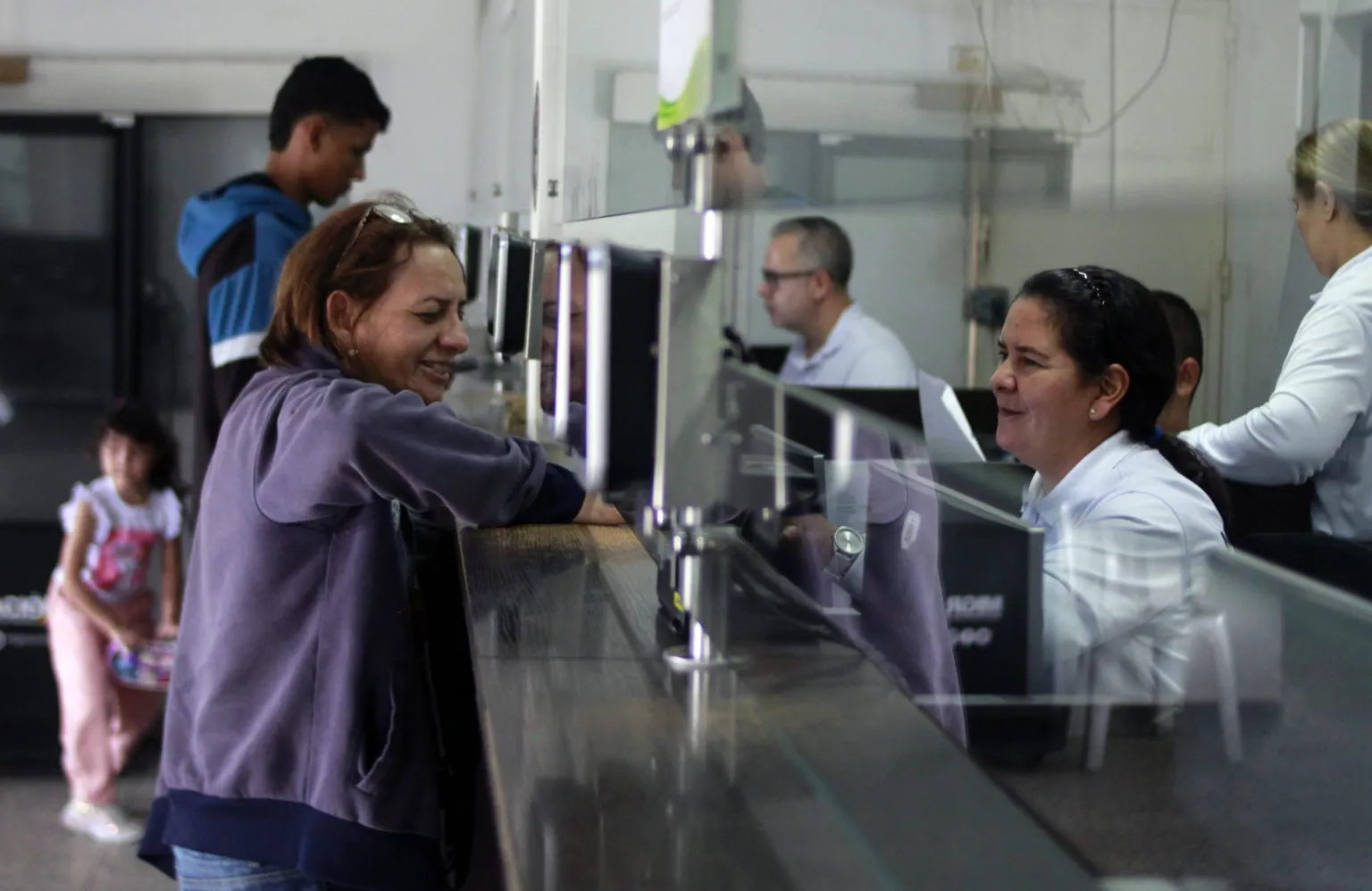
Venezuela currently has a population of approximately 29.4 million people, of which 21.4 million can theoretically vote in the presidential elections on July 28, both inside and outside the country.
However, due to the various requirements imposed by the Government for electoral registration abroad, only 69,211 Venezuelans abroad are authorized to pay – less than in the previous Venezuelan elections, which were 110,000 -, which represents a small fraction of the approximately eight million Venezuelans who, according to UN data, have emigrated, a figure that the Executive of Nicolás Maduro reduces to two million.
And even if there were no obstacles, not all Venezuelans who are abroad could vote because a large part of them are minors and others, fundamentally those who emigrated many years ago, lack interest in these elections.
Of the eight million Venezuelans who live outside their country, about five million are of legal age and should be able to vote in the elections, but only 69,000 are authorized to do so, explains Estefanía Parra Anselmi, international coordinator of Voluntad Popular and member of the command that groups the opponents who reside in Spain, to EFE.
About three million Venezuelans currently live in Colombia, making it the country that has welcomed the most citizens of that nationality.
This population arrived looking for better horizons due to the political, social and economic crisis in Venezuela.
According to the Interagency Coordination Platform for Refugees and Migrants from Venezuela of the International Organization for Migration (IOM), there are 2.9 million Venezuelan refugees and migrants in Colombia, which places this country as the regional epicenter of the Venezuelan exodus.
A good part of this population expects that the elections of July 28 will generate a change in their country, although many will not be able to vote due to difficulties in registering and the high cost of obtaining documents such as the valid passport, which allows you to vote abroad.
Spain is the European country that welcomes the most Venezuelan migrants, including many opposition leaders who left Venezuela in recent years.
Among them are Dinorah Figuera, Antonio Ledezma, Diego Arria and Leopoldo López, who are part of the Spanish campaign command of María Corina Machado.
These opponents have worked in favor of the candidacy of Edmundo González Urrutia and hope to defeat Maduro at the polls.
However, they fear that Maduro will not accept the results or manipulate them, since they consider his regime as one that resorts to cheating and fraud.
Therefore, they have asked European governments to take measures to prevent fraud.
Parliamentarians from European and Latin American countries will travel to Venezuela to be present in the presidential elections, and the opposition abroad has called for several demonstrations in support of their candidate.
Venezuelans in Brazil will face difficulties voting, since they could only register at the Embassy in Brasilia and the Consulate General of São Paulo, the only places where they will be able to vote on July 28.
Of the seven consulates that Venezuela had in Brazil, five were closed between 2019 and 2022 during the Government of Jair Bolsonaro, and did not reopen after the normalization of relations.
About 125,000 Venezuelans covered by Operation Reception live in Brazil, and it is estimated that in the last six years another 400,000 have entered, although many have continued to other countries. There are no clear figures on how many Venezuelans remain in Brazil in a position to vote.
About 1.5 million Venezuelans live in Peru, of which about 900,000 are of voting age.
Despite this, according to figures from the National Electoral Council (CNE) only 589 are authorized to vote.
Most have not been able to register due to the obstacles imposed by the authorities, which require permanent residence, a valid passport and identity card.
On July 28, the Venezuelan Consulate in Buenos Aires will open its doors to vote on a day that will include a migrant fair and the reception of Argentine leaders who collaborated in the search for freedom in Venezuela.
Elisa Trotta, a human rights activist, explains that the accompaniment seeks to support Venezuelan voters in Argentina.
In Argentina, 2,638 Venezuelans will vote, a small figure compared to the nearly 250,000 Venezuelan residents in the country.
Trotta affirms that this vote has a special symbolism and that the authorized will do so to express their desire for political change.
In Italy it is difficult to establish the number of resident Venezuelans because the majority have dual nationality.
According to the Venezuelan Embassy in Italy, there are 13,548 Venezuelans in the country, but the figures of the opposition command of María Corina Machado estimate between 300,000 and 350,000 Italian-Venezuelans.
The requirements imposed by the consulates have made it difficult for many to vote.
María Claudia López, president of the Italian-Venezuelan association and the opposition campaign, denounces that the consulates have asked for requirements that are impossible to meet, preventing many from voting.
International
Maduro signs Economic Emergency Decree to counter U.S. sanctions on Venezuela
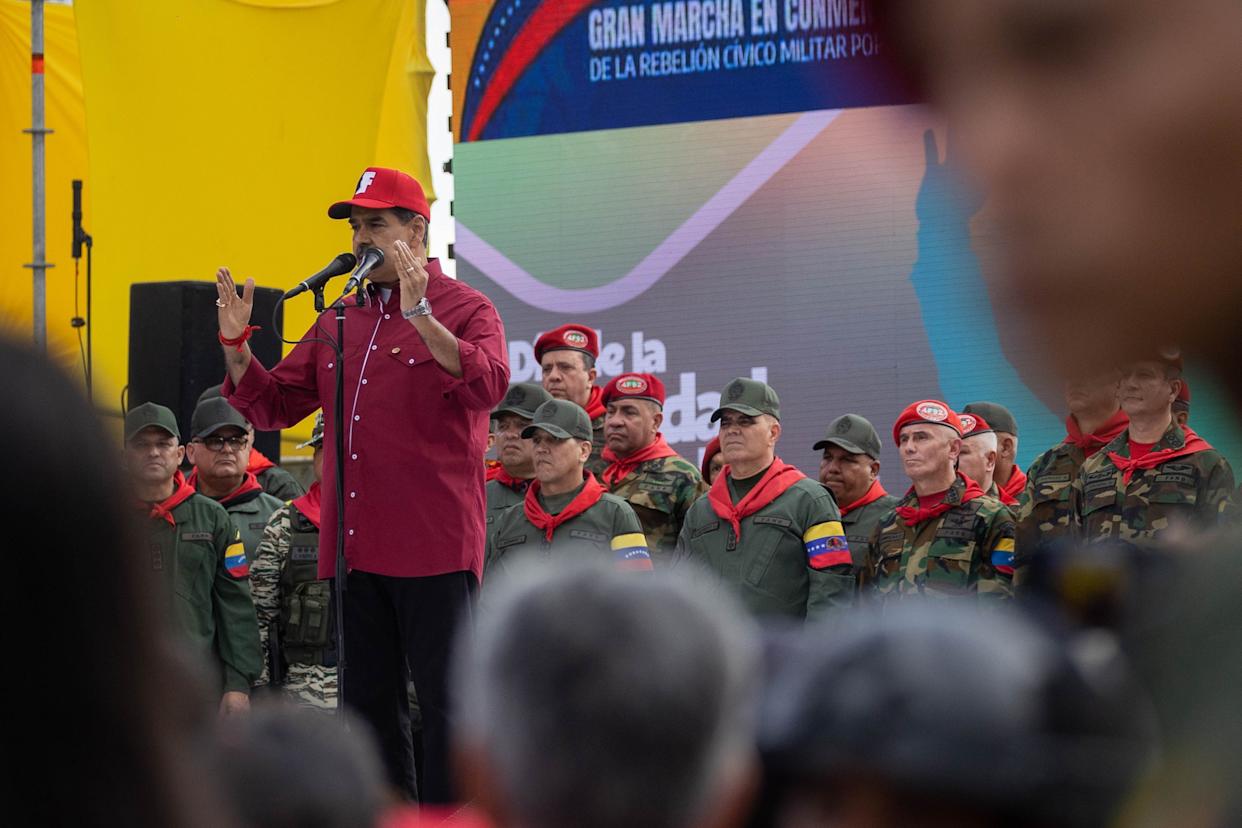
The National Assembly of Venezuela approved on Thursday an economic emergency decree presented this week by the government of President Nicolás Maduro, in response to sanctions and tariffs imposed by the United States.
In March, the government of Donald Trump began suspending licenses for foreign oil companies operating with the state-owned Venezuelan oil company PDVSA and imposed secondary tariffs on crude oil and gas exports. Maduro signed the decree on Tuesday, invoking constitutional articles that allow him to declare states of exception, temporarily restrict constitutional guarantees, or declare a state of emergency in the event of disasters, public calamities, or events that seriously threaten the country’s security.
The emergency decree “is to support national production,” said Delcy Rodríguez, Vice President and Minister of Hydrocarbons, during the document’s presentation.
“The affected oil markets, the fall in oil prices, have already surpassed 30% in our measurement, and this, as we say, is just the beginning,” Rodríguez stated, clarifying that Venezuela’s oil and gas production continues.
Rodríguez also mentioned that foreign oil companies are welcome to operate in Venezuela in accordance with local laws.
The United States has set a deadline of May 27 for oil companies operating in Venezuela, including Chevron (U.S.), Eni (Italy), and Repsol (Spain), to wind down their operations and exports.
The decree grants Maduro the authority to implement measures he deems necessary to ensure economic growth, contain inflation, offer special treatment to investors, suspend taxes, or apply exceptions to tax laws, and establish import substitution mechanisms, among other measures.
Maduro and his government have consistently rejected sanctions imposed by the United States and other countries, arguing that they are illegitimate measures constituting an “economic war” designed to cripple Venezuela.
The president and his allies have celebrated what they describe as the country’s resilience despite these measures, although they have historically attributed some economic difficulties and shortages to the sanctions.
This is not the first time Maduro has governed under an emergency decree. In 2016, he signed a similar decree, which was extended until 2021 under the argument of sanctions imposed on Venezuela by Washington.
With the Assembly’s approval, the decree must now be sent to the Constitutional Chamber of the Supreme Court of Justice.
Central America
U.S. Government says deported migrants should remain in El Salvador for life
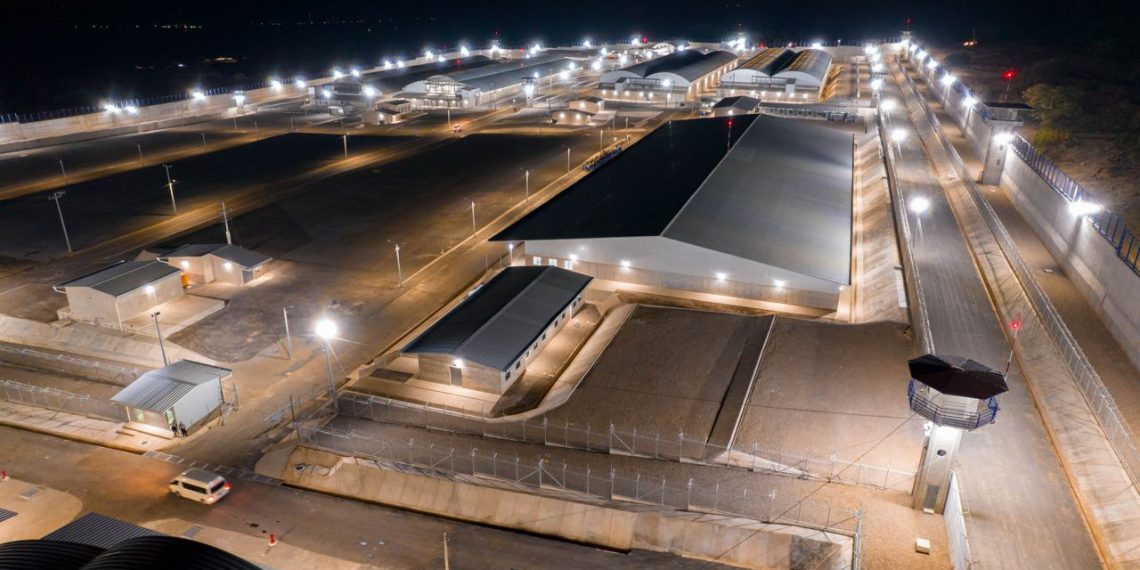
The United States government believes that the 238 migrants recently deported to El Salvador should remain in the country “for the rest of their lives.”
This was stated by Kristi Noem, the Secretary of Homeland Security, during a press conference. The following day, in a televised cabinet meeting, she reiterated the government’s commitment to continue its campaign to deport over 11 million people living in the U.S. without legal immigration status.
“We are confident that the people (sent to El Salvador) should be there, and they should stay there for the rest of their lives,” Noem told a group of reporters on Wednesday.
Despite the Trump administration’s defense of its decision to transfer the migrants to the Terrorism Confinement Center (Cecot), both testimonies from their families and reports from U.S. media outlets have shown that most of those currently detained there have no criminal backgrounds.
International
Italian biologist found dead in Colombia; investigation underway
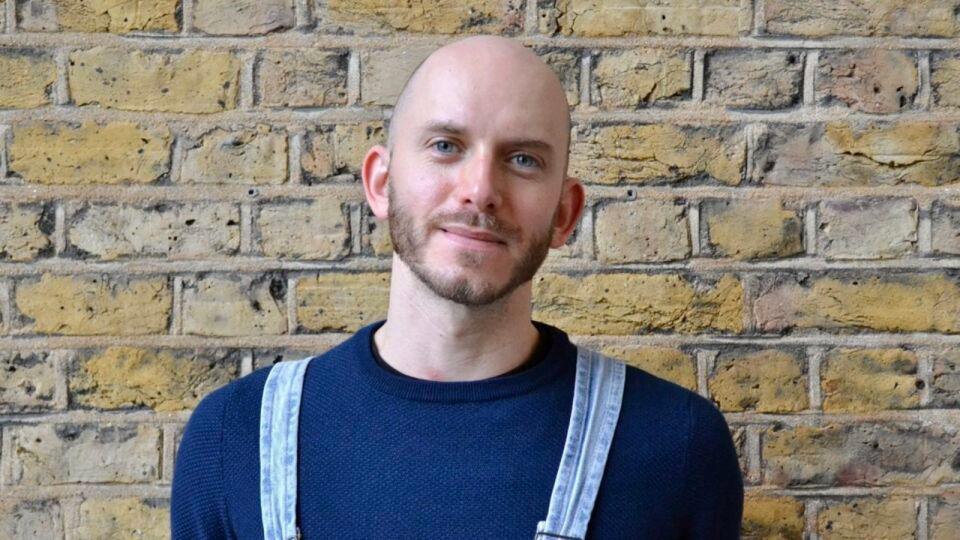
An Italian scientist has been found dead in Colombia, local authorities confirmed, after body parts were discovered along a trail in the coastal city of Santa Marta on Sunday.
Municipal police said that a bracelet found among the remains belonged to Alessandro Coatti, a biologist who had recently embarked on a journey across South America. Additional human remains were later discovered in two other locations within the city.
According to the police, Coatti had been staying in a local accommodation and was reportedly visiting the scenic Tayrona coastal area on April 5. His whereabouts since that date remain unknown, prompting an urgent investigation.
“There are currently no further details available; the case remains under investigation,” Colombia’s Attorney General’s Office said on Thursday. “It is still unclear what happened or where.”
-

 Internacionales5 days ago
Internacionales5 days agoErik Prince Backs Ecuador’s Daniel Noboa in Fight Against Crime and “Narcoterrorism”
-

 Central America5 days ago
Central America5 days agoGuatemala’s Legal Chief Shot Dead in Parking Lot: Investigation Underway
-

 International3 days ago
International3 days agoRussia and US to Meet in Istanbul for Diplomatic Talks on April 10
-

 Central America3 days ago
Central America3 days agoHonduras Hosts CELAC Summit Amid Regional Concern Over U.S. Deportations
-

 Central America3 days ago
Central America3 days agoAudit Exposes Major Breaches in Panama Canal Port Concession, $300 Million Owed to State
-

 International3 days ago
International3 days agoTeachers in Southern Mexico Bring Education to Stranded Migrant Children
-

 Central America3 days ago
Central America3 days agoMulino and Orsi Highlight Shared Vision After Panama Joins Mercosur as Associate State
-

 Central America3 days ago
Central America3 days agoTrump Administration Asks Supreme Court to Block Return of Deported Salvadoran
-

 Sports3 days ago
Sports3 days agoNeymar Returns to Santos Training After Month-Long Injury Layoff
-

 International1 day ago
International1 day agoMerengue concert turns to mourning as Jet Set collapse claims 136 lives
-
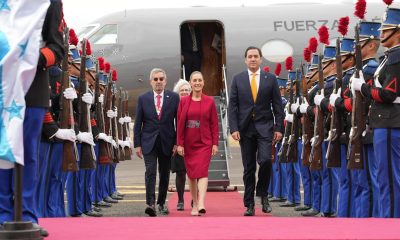
 Central America1 day ago
Central America1 day agoMexico’s president proposes regional economic summit at CELAC
-
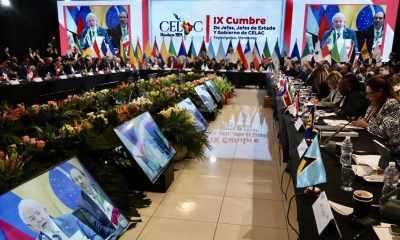
 Central America1 day ago
Central America1 day agoColombia to host fourth EU-CELAC Summit in November
-

 Central America7 hours ago
Central America7 hours agoNicaragua seeks ICJ intervention in Gaza conflict amid escalating violations
-
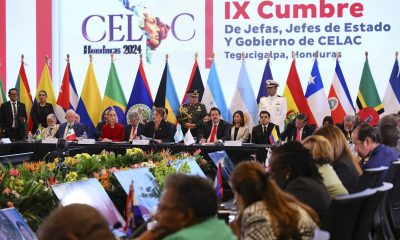
 Central America1 day ago
Central America1 day agoCELAC condemns unilateral sanctions in ‘Tegucigalpa Declaration’
-

 International3 days ago
International3 days agoMaduro Announces Economic Emergency Decree Amid Growing Tensions with the U.S.
-

 International3 days ago
International3 days agoTransgender Student Arrested at Florida Capitol for Using Women’s Restroom Under New State Law
-

 International3 days ago
International3 days agoScience Brings Back the Extinct Direwolf with Successful De-Extinction Project
-

 International7 hours ago
International7 hours agoItalian biologist found dead in Colombia; investigation underway
-

 Central America7 hours ago
Central America7 hours agoU.S. Government says deported migrants should remain in El Salvador for life
-

 International7 hours ago
International7 hours agoMaduro signs Economic Emergency Decree to counter U.S. sanctions on Venezuela















